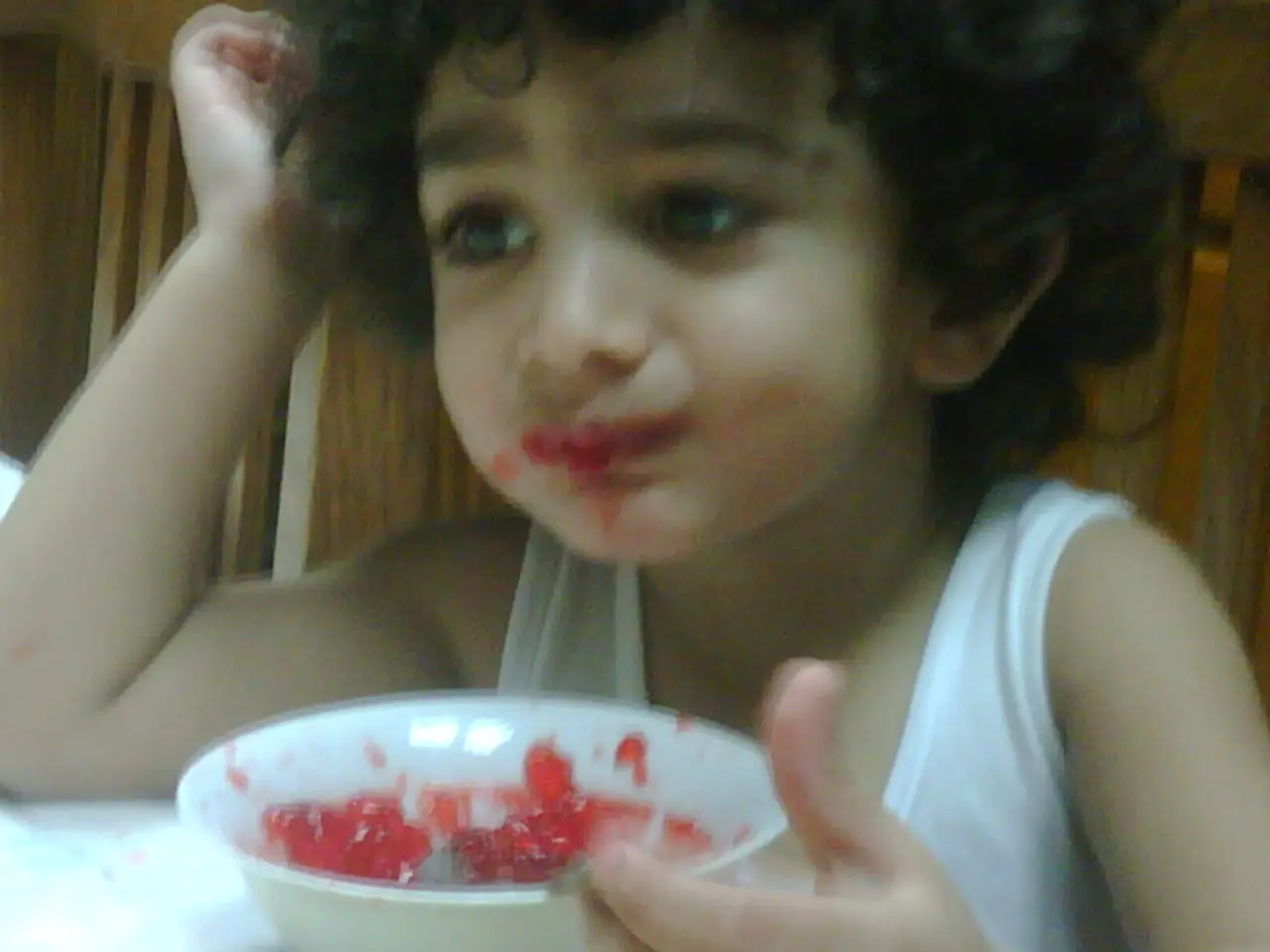Childhood Gastrointestinal Infection: Understanding Causes, Duration, Treatment, and Further Information
In the event of a child contracting gastroenteritis, a common infection that affects the stomach and intestines, it's crucial to understand how to manage dehydration effectively.
Gastroenteritis, which causes symptoms such as diarrhea, vomiting, fever, and abdominal pain, can lead to dehydration if not treated properly. A doctor can determine if any treatment is necessary for gastroenteritis and provide recommendations to help with rehydration.
The foundation of home management of dehydration in children with gastroenteritis is careful, frequent oral rehydration using appropriate fluids and monitoring for worsening symptoms. Key steps include giving the child small, frequent sips of fluids such as water, oral rehydration solutions (ORS), or clear broths to slowly replace lost fluids and electrolytes.
The best fluids are those designed to restore fluid and electrolyte balance, including ORS products or sugar-free electrolyte powders. Plain water and clear broth are also helpful. Sugary drinks (like soda and fruit juices), caffeine, alcohol, and coconut water should be avoided as they do not have the proper electrolyte balance and can worsen dehydration.
Continuing breastfeeding is advised if the child is an infant, as it provides both fluids and nutrition. Bland foods such as the BRAT diet (bananas, rice, applesauce, toast) can be introduced once vomiting and diarrhea improve, to help with nutrition without irritating the stomach.
When a child's appetite returns, they can resume their usual diet. This will not affect their recovery. However, if symptoms become severe or the child shows signs of significant dehydration, professional medical treatment, including intravenous fluids, may be needed.
Preventing gastroenteritis in the first place is important. This can be achieved by regularly disinfecting surfaces, avoiding contact with someone who has the infection, washing hands frequently, and arranging for infants under 8 months old to receive the rotavirus vaccine.
If a child's condition worsens, or if they show signs of dehydration such as dry mouth, less frequent urination, or dizziness, a parent or caregiver should contact a doctor immediately. In most cases, a child will recover from gastroenteritis at home without medical treatment, provided they stay hydrated and replace lost electrolytes.
In conclusion, managing dehydration in children with gastroenteritis requires careful attention to fluid replacement and electrolyte balance. By following the recommended steps and seeking medical attention when necessary, parents and caregivers can help ensure a child's recovery.
- In instance of a child getting gastroenteritis, a common digestive infection that affects the stomach and intestines, it's imperative to comprehend how to manage dehydration adequately.
- Gastroenteritis, responsible for symptoms like diarrhea, nausea and vomiting, fever, and abdominal pain, can induce dehydration if not treated appropriately.
- A doctor can evaluate if any treatment is essential for gastroenteritis and propose suggestions to facilitate rehydration.
- The mainstay of home management of dehydration in children with gastroenteritis entails careful, frequent oral rehydration using suitable fluids and vigilance for symptoms deterioration.
- Key steps include administering the child tiny, frequent sips of fluids such as water, oral rehydration solutions (ORS), or clear broths to gradually replace lost fluids and electrolytes.
- Pfizer's rotavirus vaccine is significant in preventing gastroenteritis in infants under 8 months old by arranging regular disinfection of surfaces, avoiding contact with an infected person, regular hand washing, and ensuring the infant receives this vaccine.
- A parent or caregiver should stay vigilant for signs of dehydration like dry mouth, less frequent urination, or dizziness in a child and contact a doctor immediately if the child's condition worsens or shows symptoms of dehydration.




